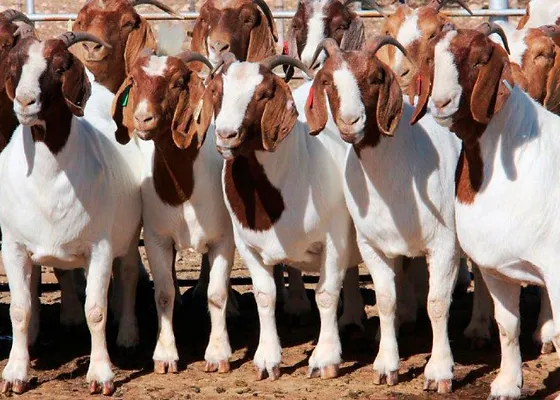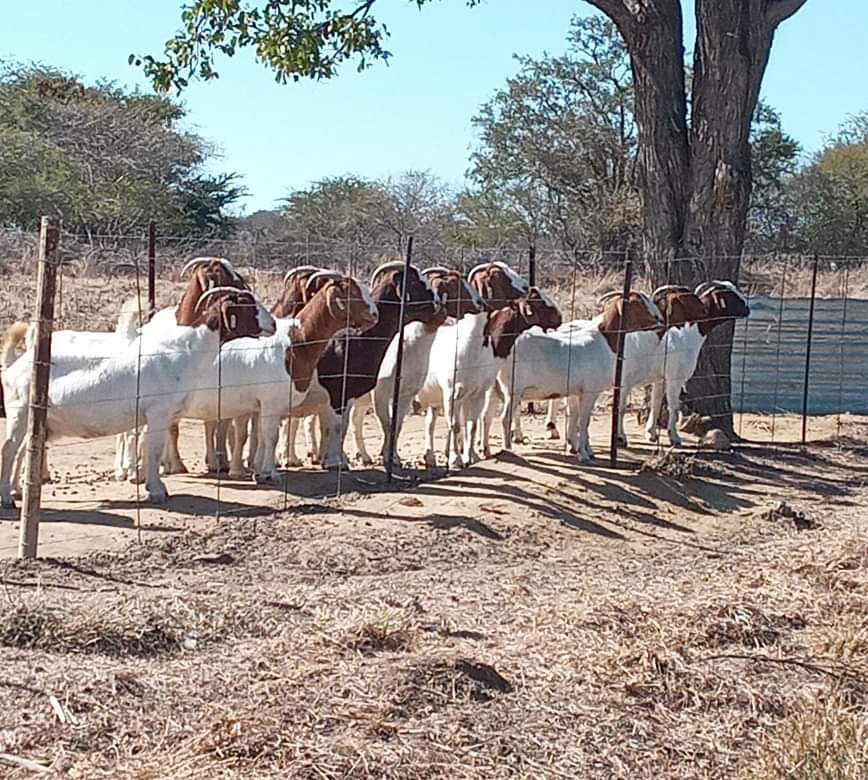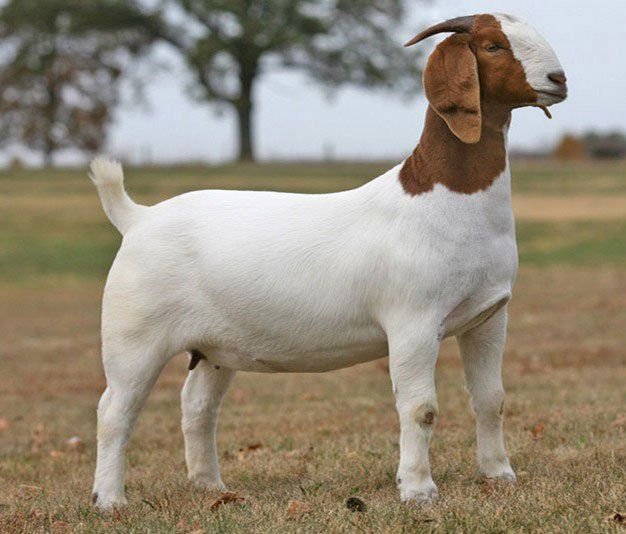Climate Change Challenges Zimbabwean Goat Farmers, But Innovative Solutions Emerge
As climate change continues to impact agricultural communities across Zimbabwe, one Boer goat farmer has found innovative ways to adapt and thrive despite the changing conditions.
In an exclusive interview with Vodloza Boer Goat Farmer, Peter Mukombe revealed how climate change negatively impacts farmers in Matabeleland.
“The biggest challenge any farmer faces is feed, because that’s like 60-65% of the overall cost of raising animals,” said Mukombe.

He added, “And that’s your biggest challenge, trying to balance that with nutritional balance for the animals.”
According to Mukombe, addressing the feed and nutrition needs of his herd is key to maintaining herd health and productivity.
He stated, “Once I address feeding the animals well, I’m doing well. I have less problems with disease, less problems with low conception rates, less problems with abortions, less problems with kid mortalities. It just reduces everything else.”
This priority on feed and nutrition has become even more critical as the effects of climate change take hold in the region. Mukombe explained that the area around his farm, located near the airport in Harare, has become increasingly dry, with the soil drying up as early as January each year.

“For us where we are in Mabvuku near the airport, I’m thinking around January where I am, because of the soil type thing isn’t. It’s already dried up,” he said.
To adapt to these changing conditions, Mukombe has implemented several innovative solutions on his farm. This includes utilising drip irrigation on a small 3/4 hectare field to grow maize for silage.
“We do drip because it’s more efficient with the water. We only drip a small field of only three quarters of a hectare. So what we do for instance, we make silage so we plant our maize in October then it grows with our drip and then the rains come in. Finish off even these little rains we’ve got assisted our maize and from that three quarters of a hectare. We’ve got about 50 tons of silage, which is more than enough.”

Mukombe also stays up to date on the latest advancements in farming practices and technologies by accessing online resources, taking courses, and hosting students from local universities on his farm.
“We encourage people now to do it commercially. That way you start to earn revenue from it, but that’s where it’s going. Farmers are getting innovative because you were asking earlier on making silage, they’re picking up old cloth. They’re mixing their own feeds. They’re being taught all these things,” he said.
While the challenges posed by climate change are significant, Mukombe remains optimistic about the future of goat farming in Zimbabwe. “Definitely anything to do with food is profitable because you don’t have a choice do you? You have to eat.”
#News in Bulawayo #News in Zimbabwe Artist Arts BCC Bulawayo Bulawayo City Council Bulawayo Drugs Bulawayo economy Bulawayo industry Bulawayo news Bulawayo Police Bulawayo Water Bulawayo Water Crisis Bulawayo Women entrepreneurship Business Women Community Culture Currency Drug Abuse Drugs Economy Farmer Farmers Farming Informal Sector Informal Traders MSMEs Music News in Bulawayo News in Zimbabwe Police Police in Bulawayo Vendor Vendors water Water Crisis Water Shortage water supply issue Women entrepreneurship ZESA Zimbabwean economy Zimbabwe news Zimbabwe water crisis ZITF ZRP
Join us for all News in Bulawayo and Bulawayo News in Zimbabwe.










